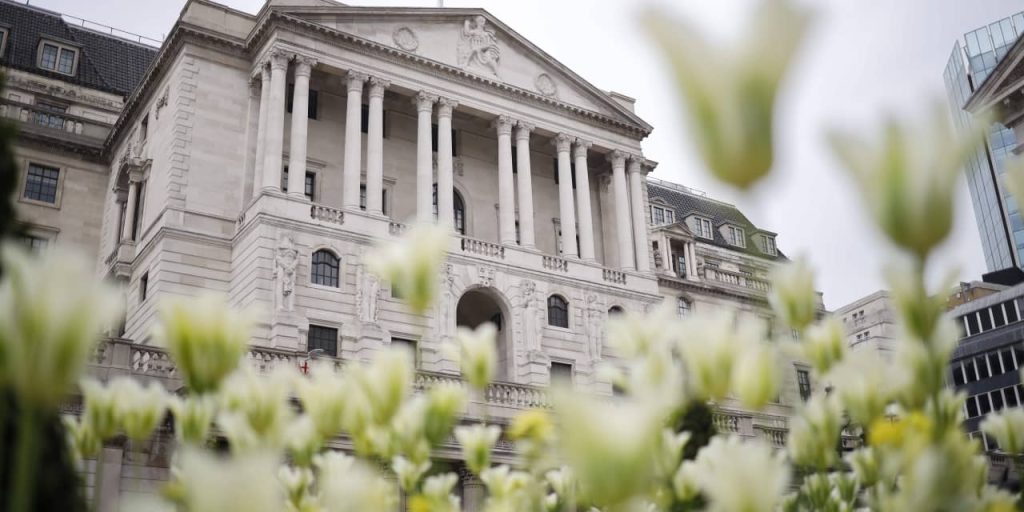U.K. government bond yields fell sharply Tuesday after softer-than-expected labor data saw investors increase bets that the Bank of England will cut interest rates by the middle of next year.
The Office for National Statistics said that U.K wage growth, excluding bonuses, was 7.3% in the three months to October compared to the same period a year ago, weaker than the 7.4% forecast by economists and down from last month’s reading of 7.8% growth.
The number of job vacancies fell by 45,000 in September to November to 949,000, the 17th cosnsecutive quarterly decline and the longest run of quarterly falls ever recorded as the jobs market cools.
“While annual growth in earnings remains high in cash terms, there are some signs that wage pressure might be easing overall,” said Darren Morgan, ONS Director of Economic Statistics.
Slower wages growth will be welcomed by the Bank of England ahead of its monetary policy meeting on Thursday, at which it is expected to leave its main interest rate at 5.25%.
Policy-sensitive 2-year gilt yields
BX:TMBMKGB-02Y
plunged 13.5 basis points to 4.470% on Tuesday as the market priced in a 25 basis-point interest rate cut by June, and for a nearly 90 basis-point reduction in 2024, up from 75 basis points before the jobs data was released.
However, with U.K. inflation of 4.6% still running well above the Bank of England’s 2% target, it is likely that Governor Andrew Bailey on Thursday will look to “rein back market expectations of an interest rate cut early next year,” according to Derren Nathan, head of equity research at Hargreaves Lansdown.
Patrick Munnelly, analyst at Tickmill Group, agreed that it was too early to expect a dovish pivot by the BOE. “As policymakers approach Thursday’s Bank of England update, they may find encouragement in the easing of employment market pressures and the slowdown in wage growth,” said Munnelly. “However, they are cognizant that wage gains, though moderating, still surpass levels consistent with sustaining the inflation target.”
Nevertheless, falling U.K. government bond yields supported the London stock market, with the FTSE 100
UK:UKX
outperforming the region to gain 0.4%.
“[U.K.] Markets certainly responded positively to today’s jobs data as the more domestically focused FTSE 250 index jumped…while a rise in the more international-focused FTSE 100 was driven in part by names that would benefit from a lower U.K. interest rate. Think housebuilders, retailers and property groups,” said Danni Hewson, head of financial analysis at AJ Bell.
The DAX
DX:DAX
in Frankfurt, which has jumped 7.5% in just the last month to touch a record high, fell 0.2%, while the CAC 40
FR:PX1
in Paris was little changed on the day.
Read the full article here















